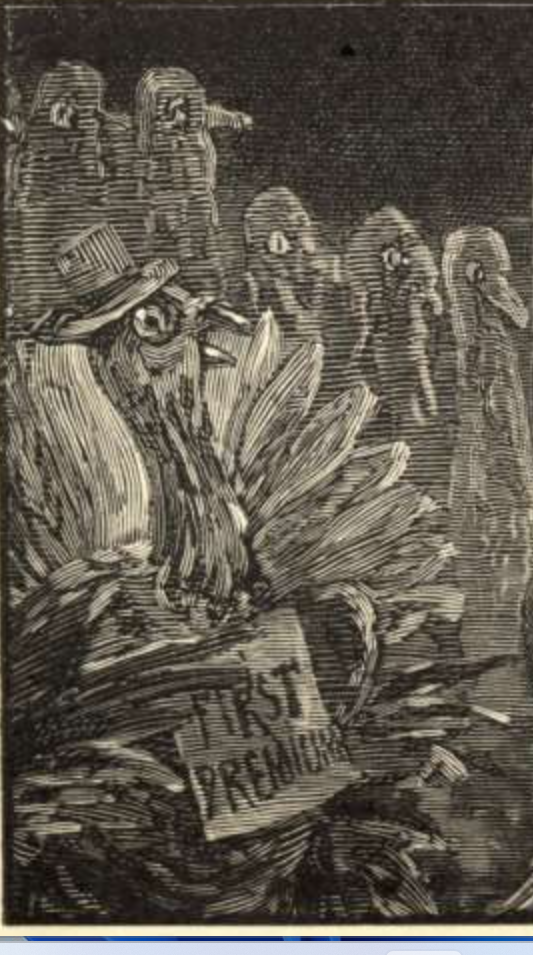she knew how people talked before animals
Here, the narrative makes explicit a project in which it has been engaged throughout: the undermining of the justification of flesh-eating based on the anthropocentric claim that a lack of language is symptomatic of the absence of animal sentience (and hence of nonhuman inferiority). This notion is linked to the little girl's earlier claim that turkeys do not possess reason and so cannot communicate beyond instinctual expressions.
 However, First Premium not only has language but he has his own idiomatic language that contains such expressions as "chickledren." Hen turkeys and turkey chicks all speak in the narrative and they speak from a specifically turkey perspective or reality. In the present narrative scene, the fact that the chicks begin to demand to be served their preferred body part is particularly disturbing because they are repeating the words used by humans in relation to turkey-flesh. For example, the human body does not have a "wish-bone" so the chicks are repeating words that they have heard ̶ and understood ̶ being spoken by humans while in the presence of turkeys that are about to be killed. The little girl "didn't know what to say, because she knew how people talked before animals" (41), because animals are considered to be without the kind of language skills that would allow them to listen, learn, and repeat human speech in the way that the narrative, in fact, witnesses.
However, First Premium not only has language but he has his own idiomatic language that contains such expressions as "chickledren." Hen turkeys and turkey chicks all speak in the narrative and they speak from a specifically turkey perspective or reality. In the present narrative scene, the fact that the chicks begin to demand to be served their preferred body part is particularly disturbing because they are repeating the words used by humans in relation to turkey-flesh. For example, the human body does not have a "wish-bone" so the chicks are repeating words that they have heard ̶ and understood ̶ being spoken by humans while in the presence of turkeys that are about to be killed. The little girl "didn't know what to say, because she knew how people talked before animals" (41), because animals are considered to be without the kind of language skills that would allow them to listen, learn, and repeat human speech in the way that the narrative, in fact, witnesses.
IMAGE CREDIT:
Screenshot. Deborah Madsen, 5 December 2022. “Turkeys Turning the Tables.” William Dean Howells, Christmas Every Day and Other Stories Told to Children. New York: Harper & Brothers, 1892. 37.
